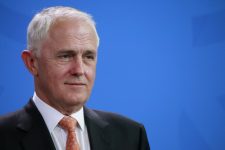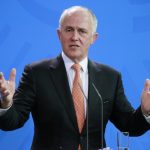Turnbull’s Foreign Donations Laws: Suppressing Anti-Government Sentiment

Political donations by foreigners will be banned and overseas government lobbyists will be required to declare their interests under new laws proposed by the Turnbull government.
The legislation will be introduced amid concerns regarding the influence of Chinese government agents and political donations to Australian politicians.
The reasoning
“Foreign powers are making unprecedented and increasingly sophisticated attempts to influence the political process, both here and abroad,” Mr Turnbull told the media.
The PM expressed concerns about attempts by countries such as China and Russia to influence politics beyond their own borders, including reports of the Putin-led Russian government’s release of intelligence information aimed at tarnishing the reputation of US presidential candidate Hilary Clinton in an attempt to swing the outcome towards ultimate victor Donald Trump.
The government will introduce a number of bills to protect against foreign donations, undisclosed foreign interests and espionage.
Foreign lobbyists
One of those laws will seek to enhance transparency by requiring foreign lobbyists to register who they are working for and acting on behalf.
It will be based on the US Foreign Agents Registry scheme, which prescribes criminal penalties for those who fail to comply.
Attorney General George Brandis foreshadowed a broad definition of “foreign actors”, which would stretch as far as former MPs and senior government officials working for foreign organisations.
He indicated that groups such as the University of Technology Sydney’s Australia-China Relations Institute, headed by former foreign minister Bob Carr, would need to register under the scheme.
Criminal offence
Mr Brandis said that a new offence of “unlawful interference” would be created, criminalising conduct which does not amount to treason or espionage but which is nevertheless intended to influence Australian government decision-making.
“If you act covertly on behalf of a foreign actor, in a way that harms Australia’s national security, to influence the political process, or a Government decision, that conduct will be criminalised,” Brandis remarked.
The Attorney General suggested that Senator Sam Dastyari’s conduct in 2015 would fall within the new offence. The senator is reported to have received money from a business connected to Chinese-linked businessman Huang Xiangmo, and then made public remarks supporting Beijing’s position on the South China Sea.
Attempts to quash anti-government lobbying
But of concern to many is that the new laws will prohibit foreign funding to activist groups like GetUp!
Finance Minister Mathias Cormann confirmed that such organisations would need to comply with the transparency scheme, and its members could be criminally prosecuted for anti-government lobbying.
“If GetUp! were to change focus, if they were to stop involvement in political campaigning in the future and become a charity [and] only be involved in non-political activities, then they would be absolutely free to receive and use foreign donations,” Senator Cormann stated.
A GetUp! spokesperson criticised these comments, pointing out that the group is representative of a wide range of individuals which should not be criminalised for wanting to effect change. She reported that 97 per cent of donations last financial year were under $100 and were sourced from 57,149 Australian individuals, with only 0.5% of donations coming from abroad.
She expressed concerns that the new laws are a backdoor way of silencing dissent against the government by criminalising those who are involved in expressing legitimate political concerns with a view to effecting positive changes.
Effect on charities and research
Australian charities and research organisations have requested greater clarity regarding the proposed laws, concerned they may influence their activities.
Misha Coleman, executive director of Global Health Alliance Melbourne (GLHAM), has expressed concerns that the definition “political” could be extremely broad, covering the work of charitable organisations.
She noted that many Australian charities receive grants and donations from foreign organisations and questioned whether, for example, public health bodies who lobby government on issues such as drug harm reduction measures would move into the territory of political activities.
She similarly questioned whether those who receive foreign grants to lobby for the protection of the Great Barrier Reef or measures to combat Indigenous disadvantage would fall under the new laws.
Effectiveness
The proposed ban on foreign donations has been criticised on the basis it could be easily circumvented by foreign concerns establishing local companies before lodging political donations.
Last month, for example, a relatively new Australian company owned entirely by a Chinese renewable energy giant donated $40,000 to the Queensland Liberal National Party.
Four days later, the director of the Australian company — who is also the chairman of the Chinese parent company — had an intimate dinner with the Prime Minister.
This is the same Chinese parent company which declared that the Australian company was established in line with the Chinese government’s ‘One belt one road’ initiative; a trillion-dollar push to establish a more powerful role in global trading networks. The company is currently bidding for investment opportunities in Queensland.
For these reasons, many believe the proposed new laws are ‘smoke and mirrors’ – that they will do little to prevent foreign donations and promote transparency. Indeed, many feel the government is simply exerting its control and making it harder for political activists and charitable groups to push for much-needed change.







